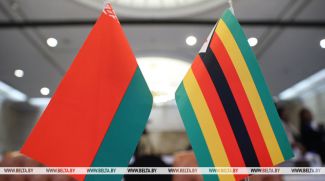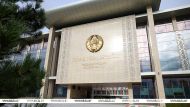MINSK, 18 December (BelTA) – The House of Representatives of the National Assembly of Belarus gave two readings to the bill on the central state budget in 2021, BelTA has learned.
According to Belarusian Finance Minister Yuri Seliverstov, the revenues are expected to reach Br23.3 billion, with expenses at Br27.3 billion and the deficit at Br4 billion.
The bill has been drafted on the basis of a target-oriented economic development scenario taking into account taxation legislation changes.
Yuri Seliverstov explained that budget spending priorities include timely debt repayments, continued efforts to raise public sector salaries and bring them closer to real sector ones, outrunning growth of salaries for low-paid citizens.
The finance minister stressed that the state budget will remain socially oriented in 2021.
Public sector salaries will be raised in two steps to follow raises of the basic pay rate, which is supposed to reach Br201.
According to Yuri Seliverstov, the state budget will provide support to real sector enterprises.
About Br1.6 billion will be transferred to the social security fund as subventions.
BelTA reported earlier that most of the state budget revenues will come as taxes – nearly Br19.56 billion. Non-tax revenues will amount to Br2.37 billion. As much as Br1.36 billion will be uncompensated receipts.
The non-tax revenues include Br14.1 billion in commodity taxes, including Br10.4 billion in VAT. Tax revenues from foreign economic operations will bring Br4 billion.
The expenses are estimated at Br27.3 billion, including Br13.36 billion set aside for general state activities, Br1.46 billion for national defense, and Br2.77 billion for the court system, law enforcement and security efforts.
As much as Br3.72 billion will be spent on the national economy, Br107.8 million on environmental protection, and Br388.9 million on housing and utility services and housing construction.
Nearly Br1.7 billion will be allocated for healthcare, Br0.5 billion for physical training, sport, culture, and mass media, Br1.3 billion for education, and over Br2 billion for social policy.













